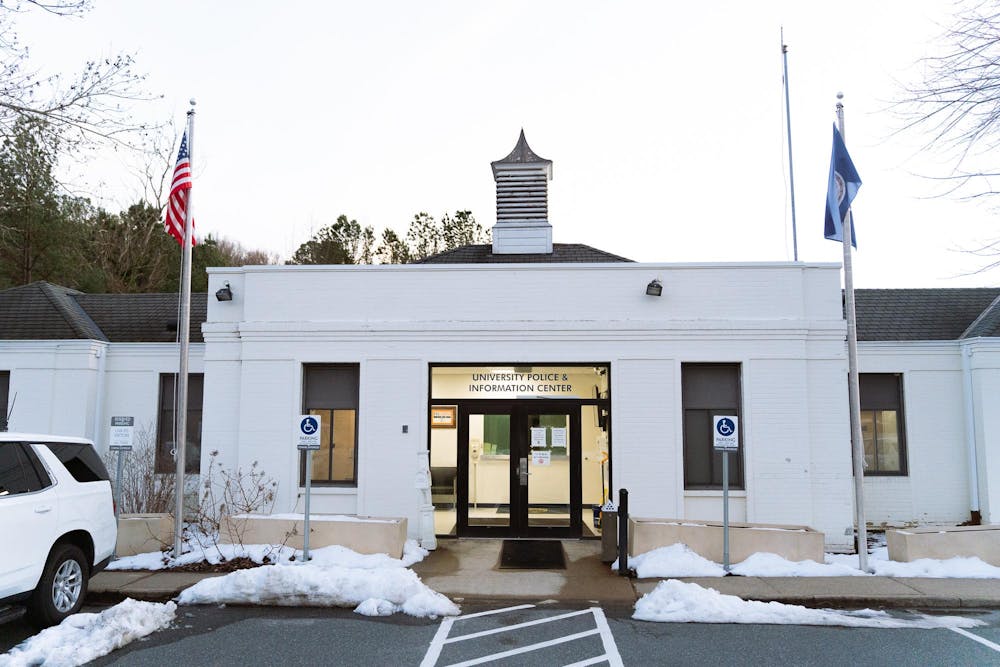In an effort to make local communities safer, the University, the City of Charlottesville and Albemarle County announced a new regional partnership through a collaboration with Project Safe Neighborhoods. Announced in a release Jan. 22, this initiative will bring together federal, state, local and tribal law enforcement officials in efforts to reduce violent crime in Charlottesville. Through these partnerships, various community organizations will collaborate to provide support to offenders, with the long-term aim of preventing future crime.
Launched in 2001, Project Safe Neighborhoods is a nationwide initiative led by the U.S. Attorneys’ Offices to reduce violent crime — particularly involving gun violence — through collaboration between law enforcement, prosecutors and community leaders. In 2021, the Department of Justice strengthened Project Safe Neighborhoods with a renewed focus on trust-building and supporting community organizations.
The Department of Justice’s Executive Committee for Project Safe Neighborhoods unanimously approved the addition of the greater Charlottesville-Albemarle County-University region into the program in August 2023, in order to address growing rates of gun violence in the region.
One immediate goal of this project is to remove illegal weapons from the streets, and keep them off long-term, a task made more effective through the coordinated efforts of the University, City and County, according to University Special Investigations Lieutenant Casey Acord. Beyond enforcement, Acord said the initiative also seeks to understand the reasons behind criminal behavior and provide community support to offenders.
“It's not so much of an initiative just to go out and clean these streets up. It's also working with our offenders and trying to understand why they are offending,” Acord said. “That's another really big part of Project Safe Neighborhoods. It's really just helping the offender, and not just trying to arrest or put somebody away for a crime.”
Acord also noted that by bringing together multiple entities, the project can expand its scope throughout Charlottesville, Albemarle and eventually other parts of Virginia — allowing for a broader analysis of crime trends, offender demographics and locations of crime.
“Crime, unfortunately, crosses all jurisdictional lines. So the benefit is [with the new initiative], we don't have fences or walls separating jurisdictions,” he said. “Also with this program in general, kind of looping in the community is really beneficial.”
Using the Project Safe Neighborhoods initiative to increase community engagement was one of 18 recommendations put forward by the Community Safety Working Group — a regional coalition formed by City Manager of Charlottesville Samuel Sanders, Jeff Richardson, county executive of Albemarle County, and University President Jim Ryan, as part of the President's Council on UVA-Community Partnerships.
The President’s Council on UVA-Community Partnerships, established by Ryan, works to foster collaboration between the University and community partners to positively impact the region. Some of its responsibilities include advising and overseeing affiliated working groups collaborating on a variety of goals, which include increasing accessibility to affordable housing and improving public health and community safety.
According to University spokesperson Bethanie Glover, the group was formed in March 2023 in response to rising gun violence in the greater Charlottesville area. In January 2024, it released its recommendations aimed at improving community well-being and reducing gun violence.
“Prevention and intervention in our region is centered on working with youth- and adult-serving organizations to increase capacity to build resilience and avoid involvement in the justice system,” Glover said.
Also highlighting the importance of collaboration in addressing gun violence was a 2023 press release from the U.S. Attorney's Office regarding Project Safe Neighborhoods. In this release, Charlottesville Police Chief Mike Kochis said that a proactive and strategic approach, supported by strong community and law enforcement partnerships, is essential for ensuring public safety.
Glover explained that across all districts, Project Safe Neighborhoods follows four key design elements of successful violent crime reduction initiatives — community engagement, prevention and intervention, focused and strategic enforcement and accountability.
One of the key steps in the project's effort to increase community safety will be the introduction of “call-in meetings” with community partners, according to Glover. She noted that these sessions will feature input from local law enforcement and are aimed at offering individuals who are closely connected to violent crime access to vital resources, including housing, employment, healthcare and parenting support.
Participation for these individuals will be voluntary, Glover said, emphasizing that the focus is on providing support rather than pursuing criminal charges or other legal consequences. These meetings will prioritize care, beginning with encouraging messages from community members and brief input from law enforcement, focusing on assistance rather than enforcement.
Community members interested in learning more about community safety efforts can attend community meetings. Details on upcoming meetings and coverage of past meetings will be posted in the President’s Council on U.Va.-Community Partnerships newsletter.







